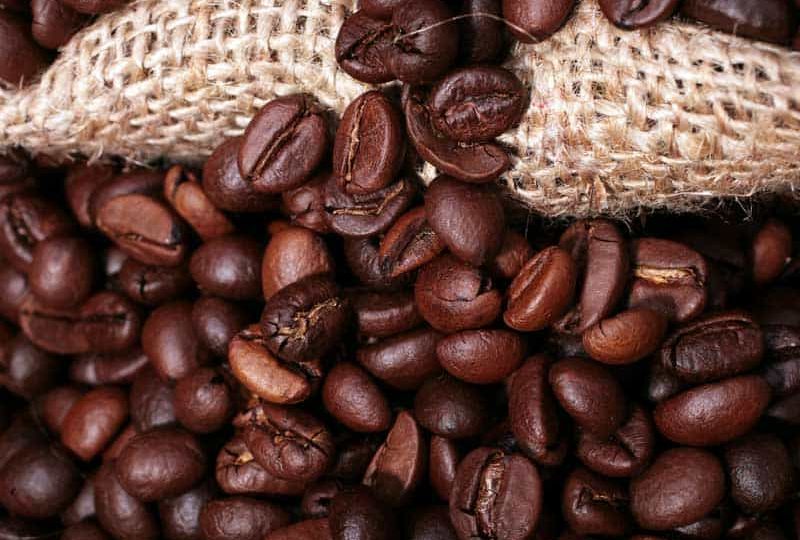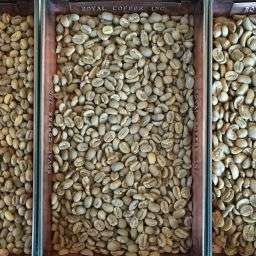
Colombian coffee is heralded worldwide for its quality and distinctive taste, capturing the essence of what many coffee enthusiasts seek. This global reputation is underpinned by the country’s commitment to predominantly growing Arabica beans, prized for their smooth, complex flavor profiles.
The importance of Arabica beans in Colombian coffee production cannot be overstated, as they contribute significantly to the nuanced flavors and aromas that Colombian coffee is famous for.
Characteristics of Colombian Coffee
Flavor Profile
The flavor profile of Colombian coffee is remarkably diverse, yet consistently characterized by its sweet, tangy, and full-bodied nature. This unique combination is a direct result of the Arabica beans used, along with the meticulous attention to cultivation and processing practices across the country. The beans often exhibit a bright acidity, complemented by a richness that can vary from chocolaty to fruity, making each cup a complex and enjoyable experience.
Growing Regions and Their Impact
The Huila region, along with others like Cauca and Nariño, plays a crucial role in defining the quality and flavor of Colombian coffee. These regions are known for their ideal coffee-growing conditions, including high altitude, volcanic soil, and a perfect balance of rainfall and sunshine.
Coffee from Huila is often highlighted for its smooth and bright profile, with hints of cinnamon and chocolate, showcasing the profound impact of terroir on the taste. The diversity of Colombia’s coffee-growing regions ensures a wide range of flavor profiles, catering to a variety of palates and preferences.
Top Brands and Beans
Review of Selected Brands
Don Pablo: Don Pablo coffee stands out for its rich, deep flavors, embodying the essence of Colombian coffee. The brand is known for its commitment to quality, sourcing beans from high-altitude regions of Colombia. While the coffee boasts a smooth, complex profile with notes of cocoa and caramel, some may find it a bit mild if they prefer a stronger, more acidic cup.
Koffee Kult: Koffee Kult has earned a reputation for its vibrant, flavor-packed coffee, particularly the Huila region beans. These beans are celebrated for their bright acidity and chocolatey undertones. However, the brand’s dedication to small-batch roasting means the flavor can vary slightly from batch to batch, which might not appeal to those seeking consistent taste.
Peet’s Coffee: Peet’s Coffee, with its Colombia Luminosa blend, offers a lighter roast that is both sweet and medium-bodied. It’s praised for its smooth, balanced flavor that lacks the bitterness often associated with darker roasts. While it’s a great choice for those who enjoy a gentler cup of coffee, aficionados seeking the bold, rich flavors typical of Colombian beans might be left wanting more.
Specialty Picks for Different Brewing Methods
Best for Pour-Over: Stone Street Coffee’s Colombian Supremo is ideal for pour-over enthusiasts. Its sweet caramel, chocolate, and fruity flavor profile shines when brewed using this method. The light roast preserves the beans’ intrinsic qualities, making it perfect for those who appreciate the subtleties of coffee flavors.
Best for Espresso: Koffee Kult’s Colombian Huila beans are a standout for espresso. The medium roast enhances the chocolate and cherry notes, providing a bold yet smooth espresso shot. Its balance of flavors ensures that the espresso is neither too sour nor bitter, appealing to those who enjoy a nuanced, flavorful espresso.
Best with Milk: Don Pablo’s Colombian Supremo is particularly well-suited for mixing with milk. The medium-dark roast offers a rich foundation that complements the creaminess of milk, without losing its distinctive chocolate, citrus, and walnut notes. This coffee’s ability to maintain its character when combined with milk makes it a favorite among latte and cappuccino lovers.
These brands and specific picks cater to a wide range of coffee enthusiasts, whether you prefer your coffee black, as an espresso, or in a milky concoction. Each offers a unique take on the rich tapestry of flavors that Colombian coffee has to offer, ensuring there’s something for every palate
Buying Guide for Colombian Coffee Beans
What to Look for in Quality Beans
When selecting Colombian coffee beans, two key factors to consider are roast type and origin specificity. The roast type affects the flavor profile; lighter roasts tend to highlight the bean’s natural flavors, offering a brighter acidity, while darker roasts bring out richer, more caramelized notes.
Origin specificity is equally important; Colombian coffees from specific regions like Huila or Nariño can offer unique taste characteristics, from fruity and floral to rich and chocolatey. Paying attention to these details can help you find a coffee that suits your personal taste preferences.
How to Store and Brew for Optimal Flavor
Proper storage and brewing are crucial for enjoying Colombian coffee at its best. To preserve freshness, store beans in an airtight container away from light, heat, and moisture. When brewing, use freshly ground coffee and clean, filtered water to ensure the best flavor.
Experimenting with different brewing methods, such as pour-over, French press, or espresso, can also highlight different aspects of the coffee’s profile, allowing you to fully appreciate the complexity of Colombian beans.
The Cultural and Economic Impact of Coffee in Colombia
Coffee plays a vital role in Colombia’s economy and culture, shaping the social and economic fabric of the country. For generations, coffee cultivation has been a way of life for many Colombian families, with the country’s geography offering ideal conditions for coffee production.
This has allowed Colombia to become one of the world’s leading coffee exporters, contributing significantly to the national economy. Culturally, coffee is a source of pride for Colombians, symbolizing the hard work and dedication of its people. The coffee industry also promotes social development and environmental sustainability, with many farms working towards organic and fair trade certifications.
The cultural rituals surrounding coffee, from cultivation to consumption, reflect the deep connection Colombians have with their beloved crop, making coffee an integral part of Colombia’s national identity.
Sustainability and Ethical Considerations
The coffee industry’s shift towards sustainability and ethical practices is evident through certifications like Organic, Fair Trade, and Rainforest Alliance. Organic certification ensures the coffee is grown without synthetic pesticides or fertilizers, promoting healthier ecosystems.
Fair Trade certification supports better prices and working conditions for coffee farmers, ensuring they can sustainably manage their land and livelihoods. Rainforest Alliance certification focuses on conserving biodiversity and ensuring sustainable livelihoods.
These certifications not only contribute to environmental protection but also enhance the social and economic well-being of coffee-growing communities, making them crucial for consumers concerned about the impact of their coffee consumption.
FAQs
What are the differences in bean types?
Colombian coffee primarily uses Arabica beans, known for their smooth, complex flavors compared to the more robust and bitter Robusta beans.
How is Colombian coffee processed?
Most Colombian coffee is washed, meaning the beans are cleaned of their cherry and mucilage, then dried. This process highlights the bean’s natural flavors and acidity.
Why is Colombian coffee so popular globally?
Its popularity stems from the ideal growing conditions in Colombia, such as altitude and climate, which contribute to the beans’ distinct flavors. Additionally, the dedication to quality and sustainability practices has cemented Colombia’s status as a top coffee producer.
Conclusion
Colombian coffee beans stand out in the global coffee scene for their quality, unique flavor profiles, and the ethical and sustainable practices behind their production. From the diverse growing regions to the rigorous certifications ensuring sustainability and fairness, Colombian coffee offers something for every palate.
Exploring the varieties and brands mentioned in this guide can lead to discovering your perfect cup of coffee, all while supporting responsible coffee production practices.









